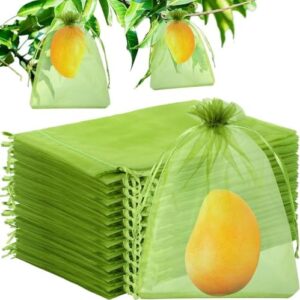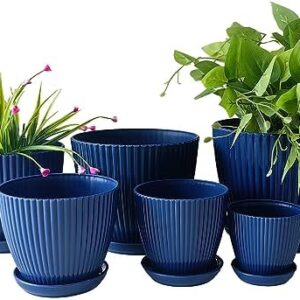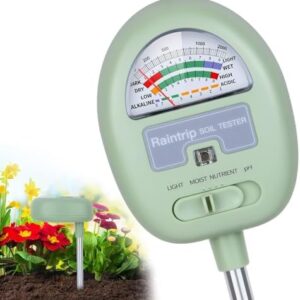If you’re like me, you love spending time in your garden, tending to your plants and watching them flourish. There’s something incredibly satisfying about growing your own food or creating a beautiful outdoor space for relaxation. But did you know that you can take your gardening to the next level by going organic?
Organic gardening is a way of growing plants without the use of synthetic chemicals or pesticides. It’s better for the environment, better for your health, and often results in more nutritious and flavorful produce. Plus, there are some simple tricks you can use to transform your garden into a thriving organic oasis.
One of the first steps to successful organic gardening is building healthy soil. The soil is the foundation of your garden, and by improving its quality, you can help your plants grow strong and resist pests and diseases. One trick to improve your soil is to add compost regularly. Compost is like a superfood for your plants, providing essential nutrients and improving soil structure. You can make your own compost by collecting kitchen scraps, yard waste, and other organic materials and letting them decompose in a bin or pile. Alternatively, you can purchase compost from a garden center.
Another trick for building healthy soil is to use cover crops. Cover crops are plants that are grown specifically to improve soil fertility and structure. They can help to prevent erosion, suppress weeds, and add organic matter to the soil. Some common cover crops include clover, rye, and vetch. Simply plant them in your garden during the off-season or in between your main crops, and then till them into the soil when they’ve grown.
Once you have healthy soil, the next step is to choose the right plants for your garden. When it comes to organic gardening, it’s important to select varieties that are naturally resistant to pests and diseases. Look for plants that are labeled as “disease-resistant” or “tolerant” in seed catalogs or at the garden center. These plants are less likely to suffer from common garden problems, which means you won’t have to rely on pesticides to keep them healthy.
In addition to choosing resistant plants, you can also use companion planting to help protect your garden from pests. Companion planting is the practice of planting certain plants together to benefit each other in some way. For example, some plants have natural pest-repellent properties that can help protect their neighbors. Marigolds, for instance, are known to deter nematodes, while basil can repel mosquitoes and flies. By strategically planting these companion plants throughout your garden, you can create a natural barrier against pests.
Another organic gardening trick is to make your own natural pest control sprays. Instead of reaching for a chemical pesticide, try mixing up a homemade solution using ingredients like garlic, hot peppers, or neem oil. These natural substances can help deter pests without harming beneficial insects or pollinators. Simply spray your plants at the first sign of trouble, and repeat as needed.
Of course, one of the best ways to prevent pests and diseases in your garden is to practice good garden hygiene. This means keeping your garden clean and tidy, removing diseased plants promptly, and rotating your crops each year. Crop rotation is a technique where you plant different crops in different locations each season to help prevent the buildup of pests and diseases in the soil. By following a simple rotation plan, you can reduce the risk of problems and keep your garden healthy year after year.
In addition to pest control, organic gardening also involves using natural fertilizers to feed your plants. Chemical fertilizers can be harsh on the environment and may harm beneficial soil organisms, so it’s best to opt for organic alternatives whenever possible. One trick for natural fertilizing is to make your own compost tea. This nutrient-rich liquid fertilizer can be made by steeping compost in water and then applying it to your plants. It’s a great way to give your garden a boost of organic nutrients without using synthetic chemicals.
Another trick for organic gardening is to use mulch to help retain moisture in the soil and suppress weeds. Mulch is a layer of organic material like straw, leaves, or grass clippings that is spread around your plants. It helps to keep the soil cool and moist, reduce evaporation, and prevent weed growth. Mulching is an easy way to improve the health of your garden and reduce the need for watering and weeding.
Finally, one of the most important tricks for successful organic gardening is to be patient and observant. Nature has its own way of balancing ecosystems, and by working with it instead of against it, you can create a harmonious and sustainable garden. Pay attention to the needs of your plants, watch for signs of pests or diseases, and make adjustments as needed. By taking a holistic approach to gardening, you can create a thriving organic garden that will bring you joy for years to come.
In conclusion, organic gardening is not only better for the environment and your health, but it can also be a rewarding and enjoyable way to grow your own food and create a beautiful outdoor space. By implementing these simple tricks, you can transform your garden into a thriving organic oasis that will benefit you and the planet. So roll up your sleeves, get your hands dirty, and start your journey to organic gardening today!






